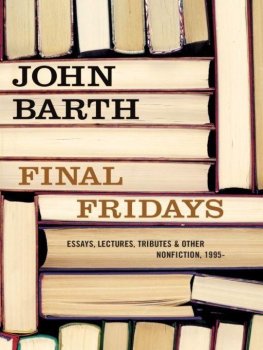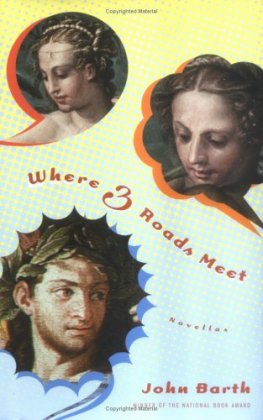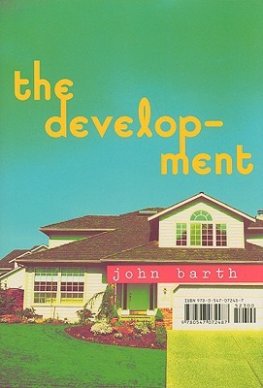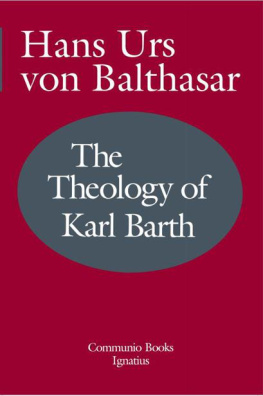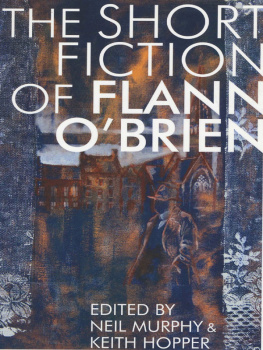John Barth - Lost in the Funhouse
Here you can read online John Barth - Lost in the Funhouse full text of the book (entire story) in english for free. Download pdf and epub, get meaning, cover and reviews about this ebook. year: 2014, publisher: Knopf Doubleday Publishing Group, genre: Prose. Description of the work, (preface) as well as reviews are available. Best literature library LitArk.com created for fans of good reading and offers a wide selection of genres:
Romance novel
Science fiction
Adventure
Detective
Science
History
Home and family
Prose
Art
Politics
Computer
Non-fiction
Religion
Business
Children
Humor
Choose a favorite category and find really read worthwhile books. Enjoy immersion in the world of imagination, feel the emotions of the characters or learn something new for yourself, make an fascinating discovery.
- Book:Lost in the Funhouse
- Author:
- Publisher:Knopf Doubleday Publishing Group
- Genre:
- Year:2014
- ISBN:978-0-8041-5250-1
- Rating:4 / 5
- Favourites:Add to favourites
- Your mark:
- 80
- 1
- 2
- 3
- 4
- 5
Lost in the Funhouse: summary, description and annotation
We offer to read an annotation, description, summary or preface (depends on what the author of the book "Lost in the Funhouse" wrote himself). If you haven't found the necessary information about the book — write in the comments, we will try to find it.
Lost in the Funhouse — read online for free the complete book (whole text) full work
Below is the text of the book, divided by pages. System saving the place of the last page read, allows you to conveniently read the book "Lost in the Funhouse" online for free, without having to search again every time where you left off. Put a bookmark, and you can go to the page where you finished reading at any time.
Font size:
Interval:
Bookmark:
John Barth
Lost in the Funhouse
LOST IN THE FUNHOUSE.Foreword to the Anchor BooksEdition
Short fiction is not my long suit. Writers tend by temperament to be either sprinters or marathoners, and I learned early that the long haul was my stride. The form of the modern short story as defined and developed by Poe, Maupassant, and Chekhov and handed on to the twentieth century I found in my apprentice years to be parsimonious, constraining, constipative. Much as I admired its great practitioners, I preferred more narrative elbow room.
The premodern tale is another matter: especially the tale cycle, as told by the likes of Scheherazade and Boccaccio. I virtually began my narrative career with one of those, but set it aside for the even more hospitable space of the novel and the more hospitable project rhythms of the novelist. Your congenital short-story writer faces the blank-faced muse once every few weeks (in the case of early Chekhov, every few days). Your congenital novelist prefers to dream up a world once every few years; to plant and people it and dwell therein for maybe a whole presidential term or the time it takes a new college freshman to complete the baccalaureate before reconfronting the interterrestrial Void.
But after a dozen years of writing and publishing the novels reprinted in this Anchor Books seriesThe Floating Opera, The End of the Road, The Sot-Weed Factor, Giles Goat-Boyin the mid-1960s I found myself hankering to re-attempt the short form, for assorted reasons:
For one thing, Less really is More, other things equal. Even quite expansive novels, if carefully written, have their own economy and rigor; but Sot-Weed and Giles are long novels indeed, and writing them increased my respect for the mode that comes least naturally to me. The clown comes to want to play Hamlet, and vice versa; the long-distance runner itches to sprint. Just as there are musical ideas that wont do for a symphony but are just right for a song, there are narrative ideas suitable only for a short story: quick takes, epiphanies that even a novella would attenuate, not to mention a novel. Over the years, I had accumulated a few such narrative ideas in my notebooks.
Moreover, I teach stories as well as telling them, and like most writing coaches I find the short story most useful for seminar purposes. You can hold a short story in your hand, like a lyric poem; see it whole; examine the function of individual sentences, even individual words, as you cant readily do with Bleak House or War and Peace. (This pedagogical convenience, together with the proliferation of creative writing programs in the U.S.A., must be largely responsible for the happy resurgence of the American short story at a time when, paradoxically, the popular audience has never been smaller.) But those model stories I was teaching came from classroom anthologies in which (novels being hard to excerpt coherently, and excerpts being formally less useful than complete works), my own fiction was seldom included. I consoled myself, maybe flattered myself, with the consideration that such eminent non-short-story-writing contemporaries as Ralph Ellison and William Styron were likewise seldom included but I wanted to be in those anthologies. Not all of a writers motives are pure.
It was about this time that I came across the writings of the great Argentine Jorge Luis Borges, whose temper was so wedded to the short forms that, like Chekhov, he never wrote a novel, and whose unorthodox brilliance transformed the short story for me. Writers learn from their experience of other writers as well as from their experience of life in the world; it was the happy marriage of form and content in Borgess ficcionesthe way he regularly turned his narrative means into part of his message that suggested how I might try something similar, in my way and with my materials.
The result was Lost in the Funhouse (I was in fact, at age thirteen or so, once briefly mislaid in a boardwalk funhouse, in Asbury Park, New Jersey; end of autobiographical reference). Incorrigibly the novelist, I decided at the outset to write not simply some short stories but a book of short stories: a sequence or series rather than a mere assortment. Though the several stories would more or less stand alone (and therefore be anthologizable), the series would be strung together on a few echoed and developed themes and would circle back upon itself: not to close a simple circuit like that of Joyces Finnegans Wake, emblematic of Viconian eternal return, but to make a circuit with a twist to it, like a Mbius strip, emblematic of well, read the book.
The series was written and assembled between 1966 and 1968. The first Doubleday edition (1968) was prefaced by the Authors Note which follows; to subsequent editions I appended Seven Additional Authors Notes, set here at the end (I was busy by then with a novel that pretends to have seven authors). The reader may skip all these frames and go directly to the first story called Frame-Tale. It happens to be, I believe, the shortest short story in the English language (ten words); on the other hand, its endless.
The High Sixties, like the Roaring Twenties, was a time of more than usual ferment in American social, political, and artistic life. Our unpopular war in Vietnam, political assassinations, race riots, the hippie counterculture, pop art, mass poetry readings, street theater, vigorous avantgardism in all the arts, together with dire predictions not only of the death of the novel but of the moribundity of the print medium in the electronic global village those flavored the air we breathed then, along with occasional tear gas and other contaminants. One may sniff traces of that air in the Funhouse (Fiction for Print, Tape, Live Voice). I myself found it more invigorating than disturbing. May the reader find these stories likewise.
John Barth
1987
AUTHORS NOTE (1968)
This book differs in two ways from most volumes of short fiction. First, its neither a collection nor a selection, but a series; though several of its items have appeared separately in periodicals, the series will be seen to have been meant to be received all at once and as here arranged. Most of its members, consequently, are newwritten for this book, in which they appear for the first time.
Second, while some of these pieces were composed expressly for print, others were not. Ambrose His Mark and Water-Message, the earliest-written, take the print medium for granted but lose or gain nothing in oral recitation. Petition, Lost in the Funhouse, Life-Story, and Anonymiad, on the other hand, would lose part of their point in any except printed form; Night-Sea Journey was meant for either print or recorded authorial voice, but not for live or non-authorial voice; Glossolalia will make no sense unless heard in live or recorded voices, male and female, or read as if so heard; Echo is intended for monophonic authorial recording, either disc or tape; Autobiography, for monophonic tape and visible but silent author. Menelaiad, though suggestive of a recorded authorial monologue, depends for clarity on the readers eye and may be said to have been composed for printed voice. Title makes somewhat separate but equally valid senses in several media: print, monophonic recorded authorial voice, stereophonic ditto in dialogue with itself, live authorial voice, live ditto in dialogue with monophonic ditto aforementioned, and live ditto interlocutory with stereophonic et cetera, my own preference; its been done in all six. Frame-Tale is one-, two-, or three-dimensional, whichever one regards a Mbius strip as being. On with the story. On with the story.
ONCE UPON A TIME THERE WAS A STORY THAT BEGAN
Font size:
Interval:
Bookmark:
Similar books «Lost in the Funhouse»
Look at similar books to Lost in the Funhouse. We have selected literature similar in name and meaning in the hope of providing readers with more options to find new, interesting, not yet read works.
Discussion, reviews of the book Lost in the Funhouse and just readers' own opinions. Leave your comments, write what you think about the work, its meaning or the main characters. Specify what exactly you liked and what you didn't like, and why you think so.

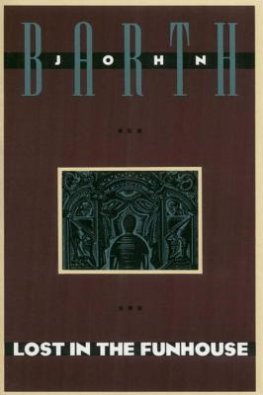
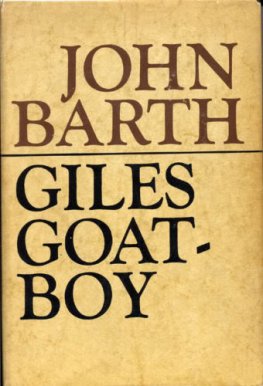

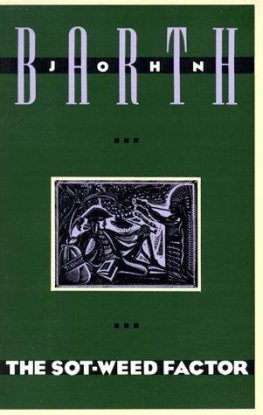

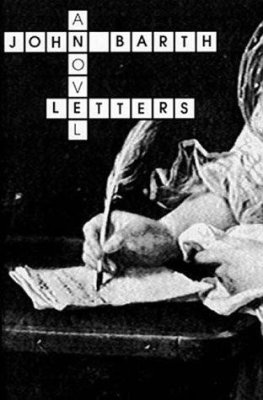
![Majkl Suenvik - Tales of Old Earth [A collection of short-stories]](/uploads/posts/book/894597/thumbs/majkl-suenvik-tales-of-old-earth-a-collection-of.jpg)
